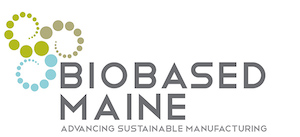UMaine's Sustainable Bioplastics Initiative, exploring use of potato starch to make polylactic acid plastics
UMAINE TODAY | FALL 2009 Research by the University of Maine’s Sustainable Bioplastics Initiative continues in collaboration with the Bangor, Maine-based Environmental Health Strategy Center/Tides Center, which recently received a $500,000 Maine Technology Institute Cluster Initiative Award. This is the third part of a project that started with a seed grant to research the feasibility of making polylactic acid (PLA) plastics – found in yogurt containers and disposable utensils – using the starch from cull potatoes. UMaine researchers also have discovered that wood by-products from Maine’s forest product facilities, such as pulp mills, are viable sources of fermentable sugars. The only U.S. plant currently making PLA plastic is in Nebraska, using corn to produce the necessary starch. Companies wanting nonGMO materials don’t have any options, but Maine is poised to fill that void while creating jobs and developing a new industry for the state. “This is a niche for Maine in making a plastic from nongenetically modified potatoes and wood by-products. The bioplastics market is growing in double-digit percentages each year, so it’s a growth market with potential for worldwide trade,” says Michael Bilodeau, director of the UMaine Pulp and Paper Process Development Center.
